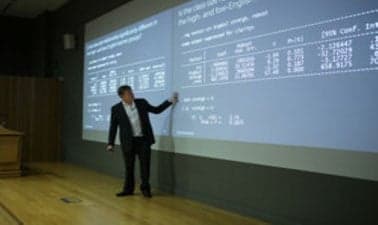GeorgetownX: Impact Evaluation Methods with Applications in Low- and Middle-Income Countries
Economic development is about making a difference in the lives of the poor, through interventions in the health, education, microfinance, transport, agriculture, and other sectors. This course will provide you with the experimental and statistical tools you need to measure the impacts you are hoping to see. How do you design and conduct a randomized control trial, and how do you evaluate the data using regression techniques? What other quasi-experimental methods can be used? How do you know you’re making a difference?

- Certification
- Certificate of completion
- Duration
- 24 weeks
- Price Value
- $ 169
- Difficulty Level
- Introductory









